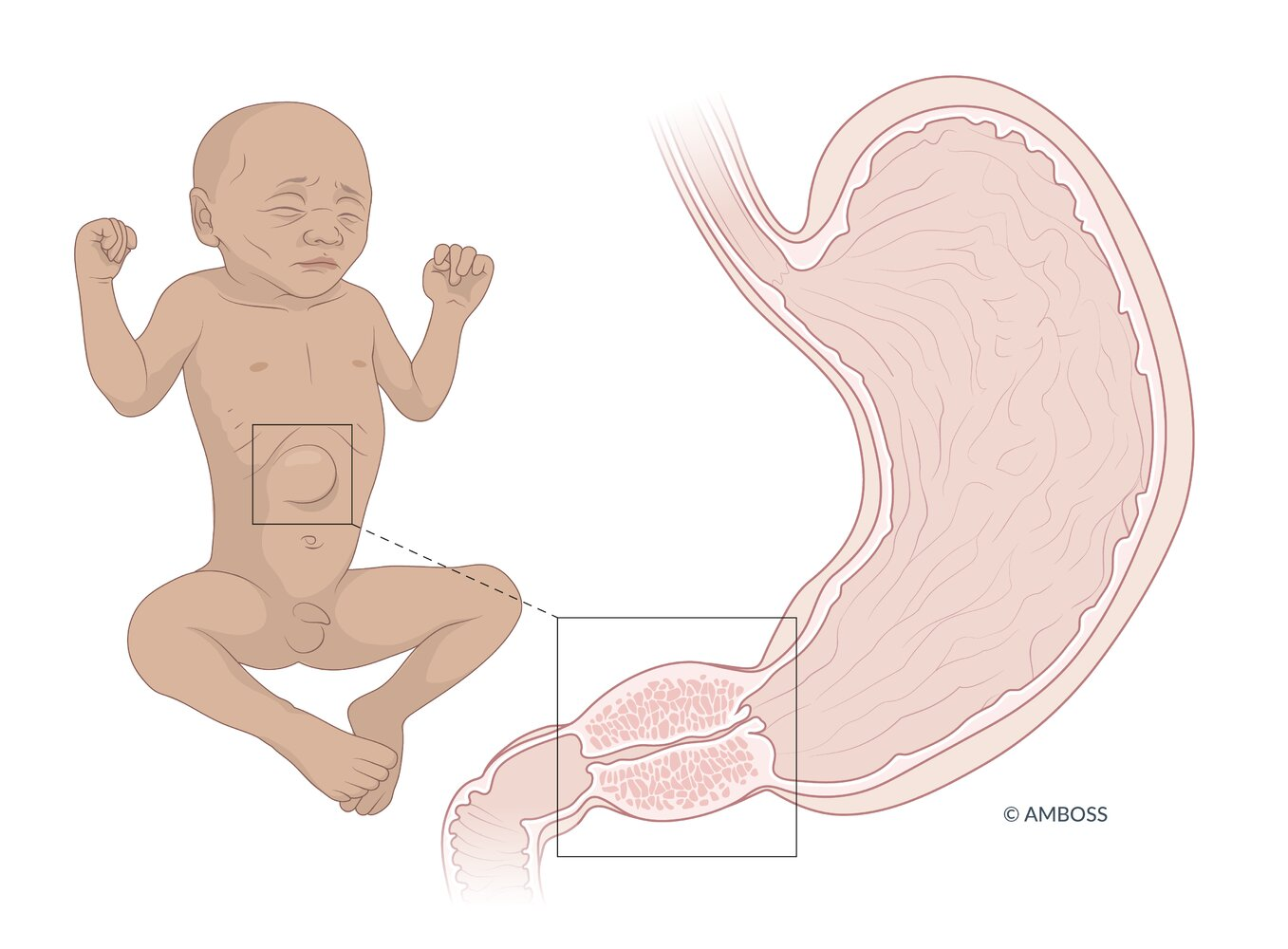Hypertrophic pyloric stenosis is the most common cause of gastric outlet obstruction in infants.
Epidemiology
Etiology
- Environmental factors
- Exposure to nicotine during pregnancy
- Bottle feeding
- Bottle-fed infants drink more milk in less time, which may lead to pylorus muscle hypertrophy through overstimulation. Another hypothesis maintains that formula components make it harder to digest and gastric emptying is delayed, which may also burden the pylorus muscle.
- Macrolide antibiotics: Erythromycin and azithromycin are associated with an increased risk of hypertrophic pyloric stenosis, especially when administered within 2 weeks after birth.
Pathophysiology
Clinical features
- Onset: typically between 2 and 6 weeks of age (rarely after 12 weeks of age)
- Symptoms
- Frequent regurgitation that progresses to projectile and nonbilious vomiting after feeding
- Continued hunger after vomiting
- Physical examination
- Enlarged, thickened, nontender pylorus on palpitation (described as olive-like)

- Visible peristaltic waves in the epigastrium
- Enlarged, thickened, nontender pylorus on palpitation (described as olive-like)
Diagnostics
- Hypochloremic hypokalemic metabolic alkalosis
- ± Indirect hyperbilirubinemia
- Commonly due to dehydration, which increases enterohepatic circulation of bilirubin.
- Ultrasound: thickened, elongated pylorus
Differential diagnostics
-
Hypertrophic pyloric stenosis:
- Regurgitation
- Projectile, nonbilious vomiting
- No diarrhea
- Alkalosis and hypokalemia
- Typically presents between 3-6 weeks of age.
- The infant will be hungry and feed, but vomit forcefully after feeding.
-
Midgut volvulus and intestinal malrotation:
- Bilious vomiting (green or yellow-green)
- Signs of bowel ischemia: hematochezia (blood in stool), hematemesis (blood in vomit), hypotension, and tachycardia in severe cases
- Abdominal distention
- Severe abdominal pain.
-
Gastroesophageal reflux in infants:
- Regurgitation and/or vomiting of food shortly after feeding
- Healthy children with normal development
-
Gastroesophageal reflux disease in infants:
- Regurgitation and/or persistent vomiting of food
- Poor appetite, weight loss, failure to thrive
- Abdominal pain/discomfort
- Wheezing, stridor, chronic cough, hoarseness
-
Gastroenteritis:
- Diarrhea
- Vomiting
- Possibly fever
-
Congenital adrenal hyperplasia with salt loss:
- Vomiting, apathy, weight loss
- Acidosis and hyperkalemia
-
Cyclical vomiting syndrome:
- Recurrent, self-limiting attacks of severe vomiting